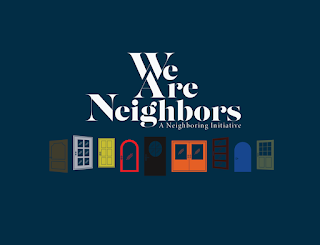Are you Practicing Cultural Neighboring or Biblical Neighboring?
I recently read an article about Cultural Christianity versus Biblical Christianity when it hit me: there is also cultural neighboring and Biblical neighboring.
The definition of what it means to be a good neighbor has been changing over the past several decades.
In the past, being “neighborly” was defined by knowing your neighbors personally and introducing yourself to new neighbors. In the 1950s, neighborliness was characterized by the understanding that one could rely on a neighbor in times of need and enjoy their company socially.
Similar studies done since 2016 have found a change in what it means to be a good neighbor. What most Americans expect from a neighbor now is someone who is quiet and will leave them alone!
In 2022, a “good neighbor” culturally is based less on connection and more on etiquette. I would say that most people think a good neighbor now is the one who takes the trash out properly, keeps the music down at night, and waves hello from a distance. Honestly, that is cultural neighboring and there is a parallel to cultural Christianity.
CULTURAL CHRISTIANITY
There was no such thing as cultural Christianity in the days of the early church. The following are some identifying marks of cultural Christianity:
• Denying the inspiration of Scripture or parts of Scripture (2 Timothy 3:16; 2 Peter 1:21).
• Ignoring or downplaying true repentance as the first step toward knowing God (Matthew 4:17).
• Focusing on Jesus’ love and acceptance to the exclusion of His teaching on hell, obedience, and self-sacrifice (Matthew 4:17; 23:33; Mark 9:43; Luke 12:5).
• Tolerating or even celebrating ongoing sin while claiming to know God (Romans 1:32; 1 Corinthians 5:1–2; 1 John 3:9–10).
• Redefining scriptural truths to accommodate culture (Numbers 23:19; Malachi 3:6).
• Denying or minimizing Jesus’ claim that He is the only way to God (John 3:15–18; 14:6).
Cultural Christianity undermines authentic or Biblical Christianity and practicing Christians should pray and seek ways to change the cultural narrative.
BIBLICAL NEIGHBORING
It means we invest in people and invest in the relationship.
Being a Biblical neighbor means we pray for our neighbors, take action to get to know them personally, seeks ways to serve with them, and invite them in to our house and lives.
Does this article make you interested in taking the Engaged Neighbor pledge? Five categories and 20 principles to guide you toward becoming an engaged neighbor. Sign the pledge online at http://engagedneighbor.com.
Contact the blog author, David L. Burton at dburton541@yahoo.com.





Comments
Post a Comment